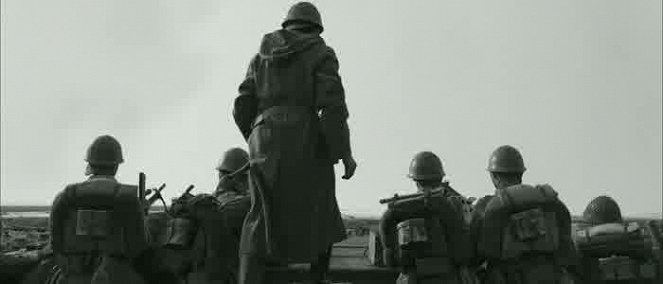Réalisation:
Chuan LuScénario:
Chuan LuPhotographie:
Yu CaoActeurs·trices:
Ye Liu, Yuanyuan Gao, Hideo Nakaizumi, Wei Fan, Yiyan Jiang, Ryu Kohata, John Paisley, Bin Liu, Sam Voutas, Beverly Peckous, Yūko Miyamoto (plus)Résumés(1)
Chine, 1937. Aux portes de Nankin, capitale de la Chine, l'armée impériale japonaise lance l'offensive. À l'intérieur, les soldats chinois sont totalement désorganisés. Certains veulent se rendre, d'autres s'y opposent par la force, alors que l'essentiel des troupes et une partie de la population civile ont déjà été évacués. Les remparts sont détruits par des tirs de chars. Les soldats japonais entrent dans la ville fantôme avec ordre de ne pas faire de prisonniers. Le « Massacre de Nankin » est en marche. Parmi les soldats japonais, le jeune Kadokawa prend part à la mise à sac de la ville tout en l'observant avec effroi. Du côté chinois, les soldats sont exécutés en masse, et les femmes de tous âges violées. Les nombreux civils qui n'ont pu être évacués tentent de s'organiser pour survivre... (Metropolitan FilmExport)
(plus)Critiques (2)
I can, of course, understand Chuan Lu's film being criticized for various things, especially the typical East Asian preference for pathos and melodrama, as there are indeed scenes that suffer from these flaws. I could also criticize the unwillingness to edit where a few scenes deserve it, but overall, it is one of the most impressive Asian war films of all time and a damn well-made piece of work that corresponds to what really happened in China at the end of the 1930s. It features excellently executed crowd scenes, and excellently shot images of violence, despair, and fear. The fact that the screenwriter and director in one does not burden himself with explaining and depicting the context of the events described is not a mistake of the creator, because he primarily made it for the domestic audience and anyone who wants can find everything necessary about the massacres in Nanking. For me, it deserves 5 stars and a thumbs up. Moreover, I couldn't possibly give less to a film that has such a great form and yet a lower rating than a stupid Hong Kong action B-movie like Hard Boiled. Of course, there is always the question of the propagandistic use of similar works in playing on the Chinese nationalist sentiment, but this film is certainly not superficial. After all, one of the sad heroes is a Japanese soldier who watches in horror how far war rage can actually go... Overall impression: 95%.
()
What a powerful experience. While some moments may have veered into the realm of being a bit embellished (particularly some emotional scenes), the entire movie offers non-Asian viewers a deep look into the Japanese mentality, hardened by the code of bushido. This mentality was responsible for numerous atrocities committed by the imperial army against war prisoners (of all enemies) and especially against civilians during the Second World War. If you're looking to understand the impact of war on civilians, this film paints a stark picture. Aside from Spielberg's portrayal of Oskar Schindler, this might be one of the few films where the strongest positive character is a Nazi. The film is incredibly convincing (and wasn't an easy watch even for me), and the atmosphere couldn't have been more oppressive. So, I can't rate it any other way than positively.
()

